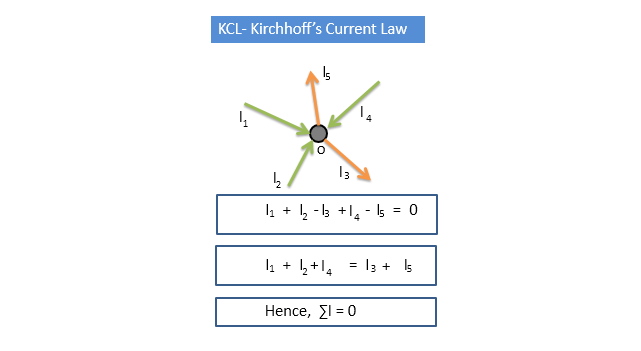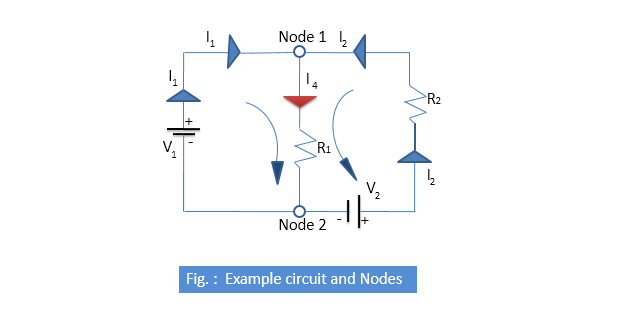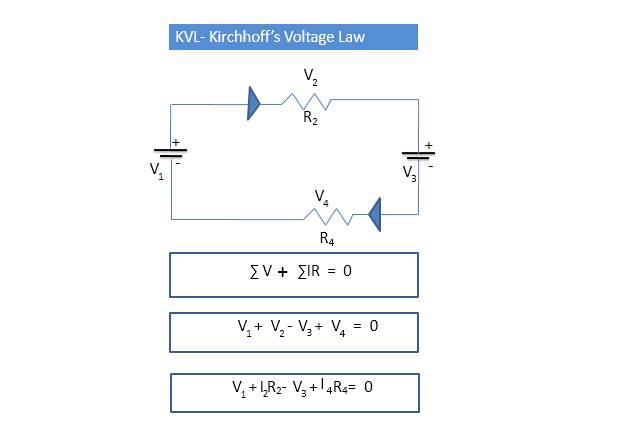hello beautiful people of steemit :)
Today we'll talk about Kirchhoff's law, how it's applied in the electrical circuits. and we'll also discuss two variants of Kirchhoff's law, the Kirchhoff's current law (KCL) and Kirchhoff's Voltage Law(KVL).
Kirchhoff's current law (KCL)
Kirchoff's law states that-
"At any node (junction) in an electrical circuit, the sum of currents flowing into that node is equal to the sum of currents flowing out of that node"
In other words, The Algebraic sum of the current flowing through the conductors at a node is equal to zero.

hence, Kirchhoff's current law states that,
the sum of Incoming currents = sum of outgoing currents
(Note: Notice that as an algebraic some we also need to consider the direction of the currents, so accordingly we take incoming currents as +ve and outgoing currents as -ve)
Nodes:
Nodes are the meeting points of the current through different conductors, whether incoming or outgoing.

Kirchhoff's voltage law
Now we will discuss the Kirchoff's second law, or Kirchhoff's Voltage law, or Kirchoff's Mesh rule.
Kirchhoff's voltage law states that-
"The algebraic sum of the products of the resistances of the conductors and the currents in them in a closed loop is equal to the total emf available in that loop."
in simplified words, we can say that the sum of total electrical potential differences in a closed loop (or mesh) is always equal to zero.

The equation above can be used to determine the voltage in any given branch, or component.
We use these Equations as a tool to solve for voltage drops in all kinds of electrical networks.
| Citations |
|---|
| 1. All images used in the post are used under CC0 license and Sources for images are cited below the images unless they are self-created. |


gif Created by @foundation
Quote of the day-
“You must be ready to give up even the most attractive ideas when the experiment shows them to be wrong.”
-Alessandro Volta
Being A SteemStem Member
Those two rules are actually very simple, intuitive and straight forward once one understands them.
I can hear electricity coming from my outlet. Like buzzzz. How does electricity make noise? Friction or heat something else? Great post too. Joy
Your Post Has Been Featured on @Resteemable!
Feature any Steemit post using resteemit.com!
How It Works:
1. Take Any Steemit URL
2. Erase
https://3. Type
reGet Featured Instantly � Featured Posts are voted every 2.4hrs
Join the Curation Team Here | Vote Resteemable for Witness